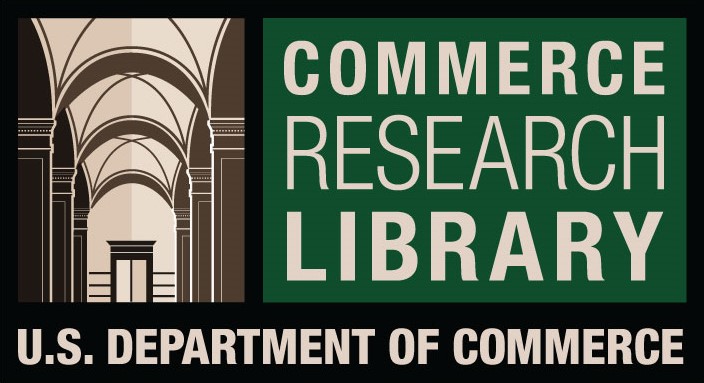Occupational Burnout among Nurses working at Governmental Teaching Hospitals in Babylon Province, Iraq
DOI:
https://doi.org/10.61841/hv4tzp48Keywords:
Occupational Burnout,, Emotional Exhaustion,, DepersonalizationAbstract
Aimed this study to be assessed the level burnout among nurses and found the relationship between occupational burnout socio-demographic of responders. The study Initiated from (September 2019 to March 2020), The research design was employed in this study a descriptive design. The sampling of this study was the purposive sample by 180 nurses working in four governmental teaching hospitals in Babylon province, Iraq. The results of data analysis was employed by Statistical Package for Social Science (SSPS version 24) that found burnout levels of the study sample (57.8%) a moderate level of burnout and subdomain burnout levels results was (57.8%) of sample moderate level for emotional exhaustion and the depersonalization ( 61.1%) moderate level. However, Personal Achievement was reported (61.1%) high level score, as well there was significant difference between occupational burnout and number of experience in nursing, so there was no relationship between, material states and burnout. However, there was association between burnout level and income monthly, job description and degree of satisfied with current work. The researchers found that burnout impact on nurses and correlated negatively with some their socio-demographic characteristics and they recommended to enhance nurse's stress coping.
Downloads
References
[1] World Health Organization. International Classification of Diseases 11th Revision (ICD-11). The Global Standard for Diagnostic Health Information; WHO: Geneva, Switzerland, 2019.
[2] Maslach, Christina, and M. P. Leiter. "Burnout." Stress: Concepts, Cognition, Emotion and Behavior.
Academic Press, 2016. 351-357
[3] Bešević-Ćomić, V., Bosankić, N., & Draganović, S. (2014). Burnout syndrome and self-efficacy among nurses. Scripta Medica, 45(1), 26-29.
[4] Wang, L., Tao, H., Bowers, B. J., Brown, R., & Zhang, Y. (2018). Influence of social support and self- Efficacy on resilience of early career registered nurses. Western journal of nursing research, 40(5), 648- 664.
[5] Alfuqaha, O., & Alsharah, H. (2018). Burnout among Nurses and Teachers in Jordan: a comparative study. Archives of Psychiatry and Psychotherapy, 20(2), 55-65.
[6] Woo, T., Ho, R., Tang, A., & Tam, W. (2020). Global prevalence of burnout symptoms among nurses: A systematic review and meta-analysis. Journal of Psychiatric Research, 123, 9-20.
[7] Zaki, R. (2016). Job Stress and Self-Efficacy among Psychiatric Nursing Working in Mental Health Hospitals at Cairo, Egypt. Journal of Education and Practice, 7(20), 103-113.
[8] Koy, V., Yunibhand, J., Angsuroch, Y., & Fisher, M. L. (2015). Relationship between nursing care quality, nurse staffing, nurse job satisfaction, nurse practice environment, and burnout: literature review. International Journal of Research ;3(8):1825-1831
[9] Kousar, R., Afzal, M., Sarwar, H., Waqas, A., & Gillani, S. A.(2017 )The Impact of Job satisfaction on Nurses’ Burnout among Registered Nurses at Jinnah Hospital Lahore, Pakistan. Vol-3, Iss-6A :528-533
[10] National Taskforce for Humanity in Healthcare.(2018) from https://www.vocera.com/national-taskforce- humanity-healthcare
[11] Maslach, S.E. Jackson, M.P. Leiter (Eds.), Maslach Burnout Inventory manual (3rd ed.), Consulting Psychologists Press (1996)
[12] Alidosti, M., Delaram, M., Dehgani, L., & Maleki Moghadam, M. (2016). Relationship between self- efficacy and burnout among nurses in Behbahan Province, Iran. Women's Health, 3, e30445.
[13] Elkazaz, R. H., & Berma, A. E. (2015). Stress and Self Efficacy among Nurses in Neonatal Intensive Care Units. International Journal of Research-Granthaalayah, 5(2), 237-251.
[14] Fida, R., Laschinger, H. K. S., & Leiter, M. P. (2018). The protective role of self-efficacy against workplace incivility and burnout in nursing: A time-lagged study. Health care management review, 43(1), 21-29.
[15] Merces, M. C. D., Coelho, J. M. F., Lua, I., Silva, D. D. S., Gomes, A. M. T., Erdmann, A. L.,... & Servo,
M. L. S. (2020). Prevalence and Factors Associated with Burnout Syndrome among Primary Health Care Nursing Professionals: A Cross-Sectional Study. International Journal of Environmental Research and Public Health, 17(2), 474.
[16] Mahdizadeh, J., Daihimfar, F., & Kahouei, M. (2016). The relationship of job stress with self-efficacy among nurses working in hospitals of Semnan University of Medical Sciences, Iran. Bioscience Biotechnology Research Communications, 9(3), 435-438.
[17] Putra, K. R. (2019). Prevalence of burnout syndrome among nurses in general hospitals in provincial East Java: Cross-sectional study. Enfermeria clinica, 29, 362-366.
[18] Saeidi, R., Izanloo, A., & Izanlou, S. (2020). A Study of the Relationship between Job Satisfaction and Burnout among Neonatal Intensive Care Unit Staff. Iranian Journal of Neonatology IJN, 11(1), 67-70.
[19] Queirós, C., Ruggieri, R., Borges, E., & Fiabane, E. (2019). Burnout and job demands among nurses: a comparative study between Portugal and Italy. In International Congress of Occupational Health Nursing: proceedings.
[20] Al-Omari, A., Al Mutair, A., Shamsan, A., & Al Mutairi, A. (2020). Predicting Burnout Factors among Healthcare Providers at Private Hospitals in Saudi Arabia and United Arab Emirates: A Cross-Sectional Study. Applied Sciences, 10(1), 157.
[21] Okwaraji, F. E., & En, A. (2014). Burnout and psychological distress among nurses in a Nigerian tertiary health institution. African health sciences, 14(1), 237-245.
[22] Molina-Praena, J., Ramirez-Baena, L., Gómez-Urquiza, J. L., Cañadas, G. R., & De la Fuente, E. I. (2018). Levels of burnout and risk factors in medical area nurses: A meta-analytic study. International journal of environmental research and public health, 15(12), 2800.
[23] Tay, W. Y., Earnest, A., Tan, S. Y., & Ng, M. J. M. (2014). Prevalence of burnout among nurses in a community hospital in Singapore: a cross-sectional study. Proceedings of Singapore healthcare, 23(2), 93- 99.
[24] Behilak, S., & Abdelraof, A. S. E. (2019). The relationship between burnout and job satisfaction among psychiatric nurses. Journal of Nursing Education and Practice, 10(3), p8.
Downloads
Published
Issue
Section
License

This work is licensed under a Creative Commons Attribution 4.0 International License.
You are free to:
- Share — copy and redistribute the material in any medium or format for any purpose, even commercially.
- Adapt — remix, transform, and build upon the material for any purpose, even commercially.
- The licensor cannot revoke these freedoms as long as you follow the license terms.
Under the following terms:
- Attribution — You must give appropriate credit , provide a link to the license, and indicate if changes were made . You may do so in any reasonable manner, but not in any way that suggests the licensor endorses you or your use.
- No additional restrictions — You may not apply legal terms or technological measures that legally restrict others from doing anything the license permits.
Notices:
You do not have to comply with the license for elements of the material in the public domain or where your use is permitted by an applicable exception or limitation .
No warranties are given. The license may not give you all of the permissions necessary for your intended use. For example, other rights such as publicity, privacy, or moral rights may limit how you use the material.









